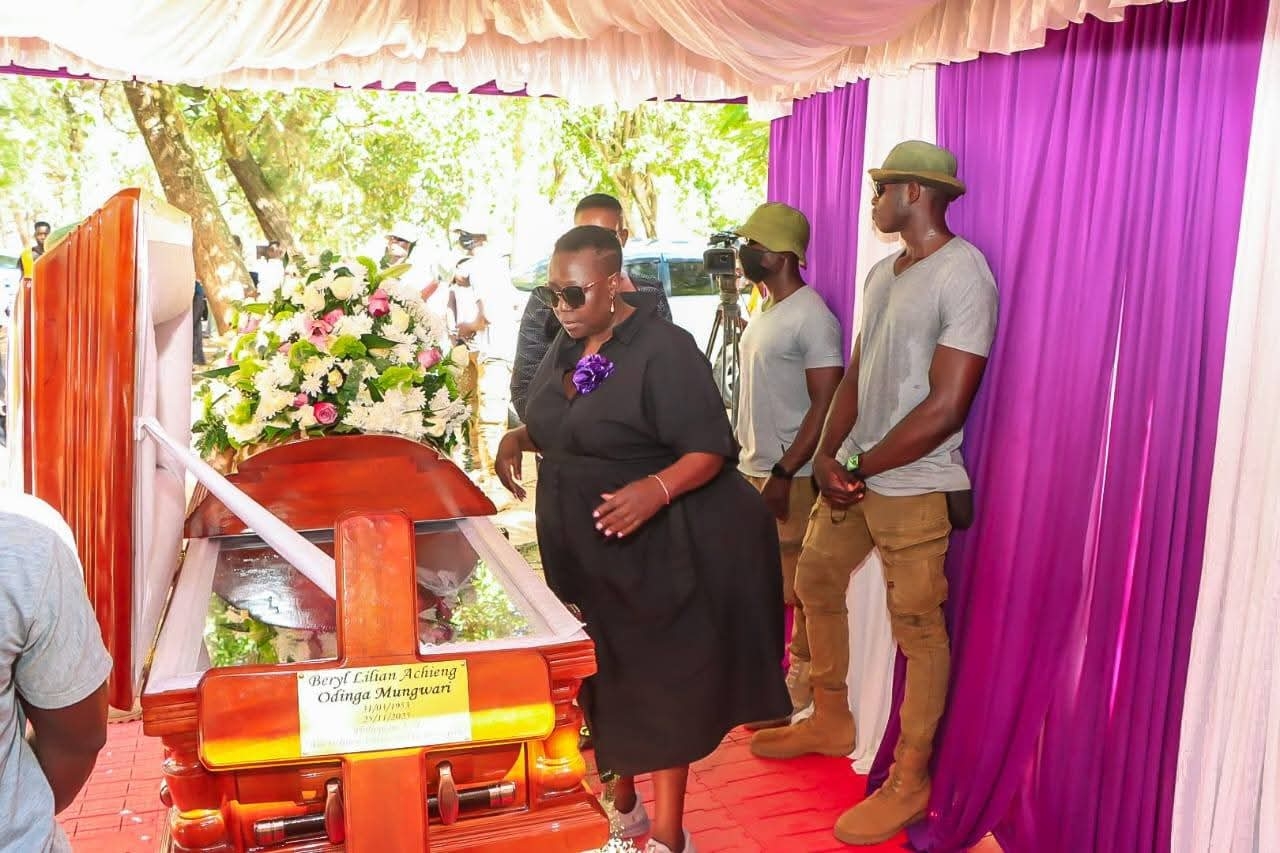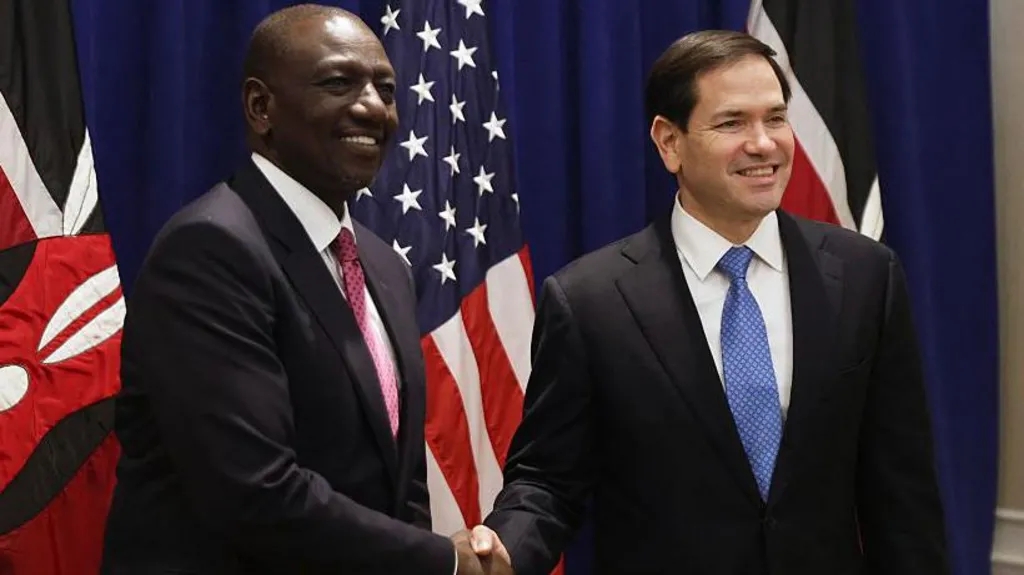
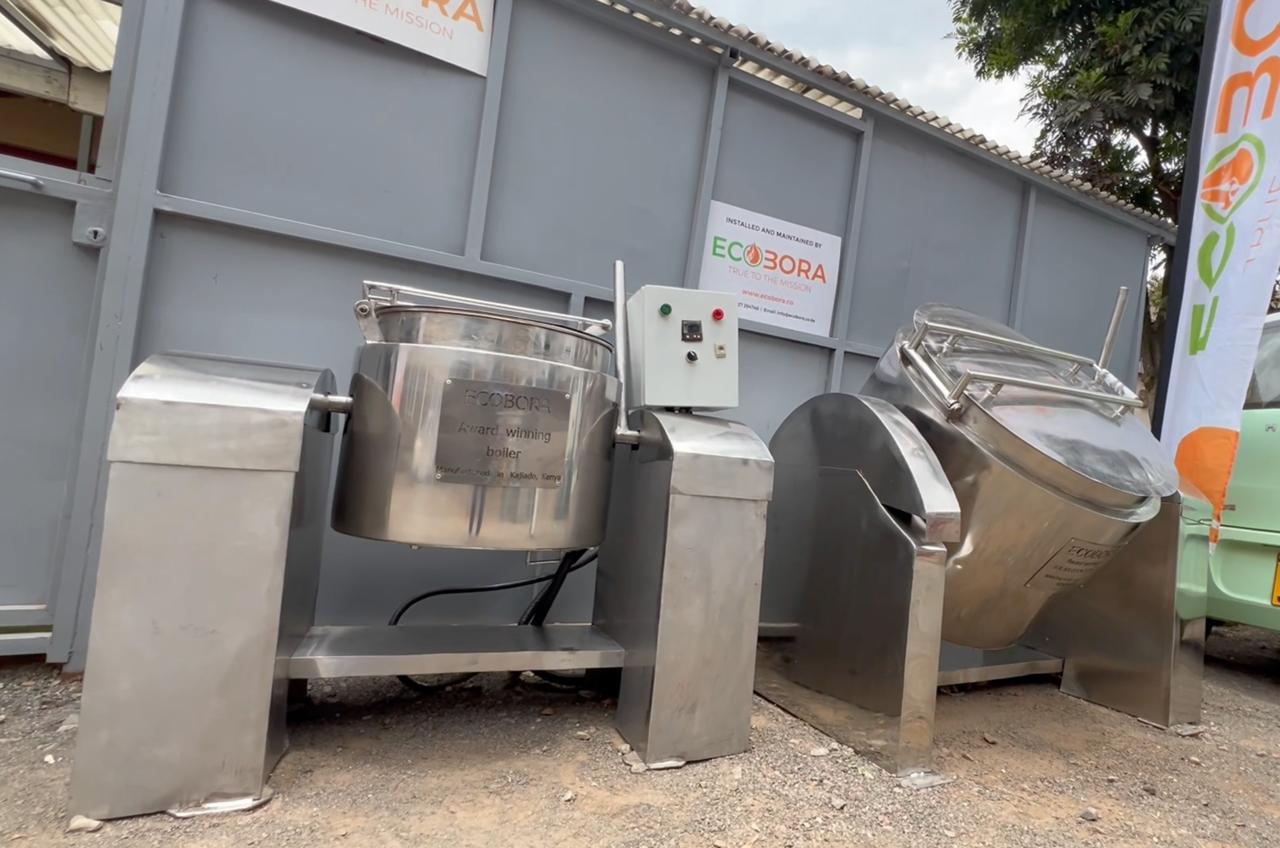
Against the stunning backdrop of Africa’s highest mountain, Mt Kilimanjaro, Oloitoktok’s children endure a harsh reality, one where beauty and hardship coexist under a punishing sun that never lets up.
It is 8 am in the arid plains of Oloitoktok, Kajiado County, where the sun blazes relentlessly over the horizon and Mt Kilimanjaro looms like a silent giant, life unfolds under a sky that rarely shows mercy.
The dry wind carries dust instead of rain, and the cracked earth bears witness to seasons of unending heat.
On our way to the deeper parts of the area, we are met by children trekking for miles beneath the scorching sun, their small feet kicking up clouds of dust as they make their way to schools which are kilometres away.
Here, basic amenities are a luxury, clean water, food and medical care often out of reach. Hunger gnaws quietly as the families strive to make ends meet.
In the harsh reality of life, school children are finding a reason to persevere through the weather to go to school.
A hot plate of githeri meal is served every day without fail. This, otherwise, would make one or the only meal they take for the day.
What was a norm and mandatory carrying of firewood to schools by the children is now a thing of the past.
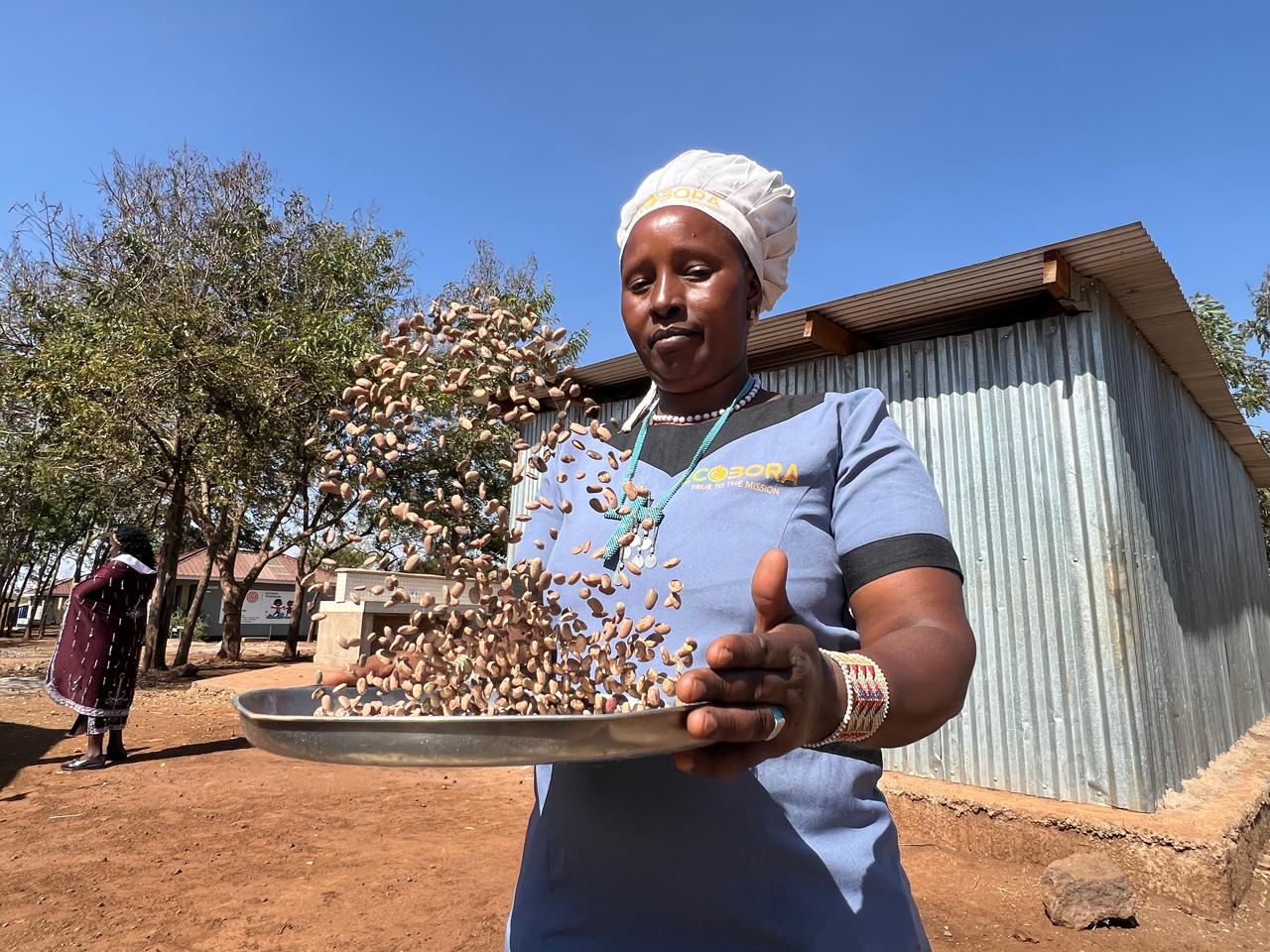
Through ECOBORA's solar-powered cook stoves, the children can now access hot meals consistently and on time.
By eliminating the need to use firewood, schools have been able to save millions of shillings every year, now directed to providing meals.
The use of solar has not only reduced smoke exposure but also created a healthier and more dignified cooking environment for cooks.
For learners, it is all about reliable meals, cleaner surroundings and a chance to study in a better-equipped school, all powered by the sun.
THROUGH THEIR EYES
“Good morning, everyone, my name is Samuel Temka, ready to present a short speech…..”
Temka, a grade eight student, is heard speaking to fellow students as we make our way into the school.
The grade eight pupil, who rides his bicycle daily to school, is grateful for the burden that has been offset on his shoulders.
Previously, he would carry water, firewood and books daily to school, presenting a long and arduous morning before the day starts.
This, he says, prevented him from concentrating on his studies and often wondering when to get firewood for the next day.
However, today he rides hundreds of kilometres, crosses the Tanzanian border to come to Olmapinu Comprehensive School to access education.
Here, he is provided with a meal during lunch time, he can get access to computer labs for his digital lessons and clean water.
“The solar-powered cookers have made it easier for us to get meals; it is a relief to us from the burden of carrying firewood from homes to schools. It has relieved our cook from the effects of smoke. It saves time for both teachers and pupils as food is served on time,” he said.
According to him, they would often be punished for not getting firewood and carrying it to school was a heavy burden.
“Lunch doesn’t delay since then.”
Olmapinu Comprehensive School Cook Joyce Seyem was always in and out of hospital seeking medication in the past years.
This is due to the smoke from firewood that impacted her health from the exposure.
“I have cooked with firewood for the longest time now. We used to cook from outside and sometimes you will find strong winds blowing the fire off. I also got problems due to smoke, my eyes and chest and pain all the time,” she said.
“It is like my salary was just being used on hospital for medication.”
Seyem said that there was a time the roof of the kitchen just tore due to smoke and heat.
“Since we got the solar-powered cook stoves, I have never been to the hospital due to smoke or heat, and life has significantly changed.”
According to her, preparations started the previous day when she would soak the maize to soften it for the next morning.
This did not help to reduce the cooking time as meals used to delay every day, disrupting the normal operations in the school.
“It used to take time to cook. I would start cooking at around 7 am and by 2 pm, the meal would not be ready yet. However, currently, by 11 am, lunch is ready and served on time. Also, as a parent in the school, the health of my children has improved,” she said.
“You would often meet pupils carrying water on one hand, firewood on another and a heavy backpack, which was really hard for them. Now they only carry their backpack.”
The use of the cook stoves, she says, has improved cleanness in the school compared to when meals were prepared outside.
“Wind would blow dust or pieces of sticks into the food, which was unhygienic.”
TRANSFORMATION AT OLMAPINU
Teachers have not been left behind either, Junior Secondary teacher Peter Mepukori says they can now charge their phones at school, and do research due to the availability of electricity.
According to him, the school performance has improved with learners recording consistent attendance.
Mepukori said the general environment of the school has been maintained since they have focused more on conserving trees.
“We have computers that use solar, pupils have computer lessons, which is a rare thing in the remote areas in Kajiado. In classes, pupils use their time to concentrate on learning and not looking for firewood. Digital literacy is now the norm,” he said.
Mepukori, who is also an environmental teacher and head of the club, says they are also engaging pupils on the importance of conservation and move to clean energy.
Olmapinu Comprehensive School Head teacher Sylvia Saruni says the introduction of solar-powered cook stoves from ECOBORA has brought remarkable change to the school, which serves 513 learners from pre-school to junior secondary.
Before the solar boilers were installed, cooking relied entirely on firewood, and pupils were required to bring wood from home every morning.
“Children do not go and fetch firewood anymore from the bush. They just come to school without carrying anything. Before, they used to come carrying water and firewood, but now, they just come with their school bags, and they come to school on time.”
Saruni said the change has also occasioned an improved performance because lateness is not there anymore.
According to her, the cook’s health and working conditions have also improved.
“Before, she used firewood, and it was very, very hot for her. The smoke itself was not good for her health. Now she cooks comfortably, and the food is cooked on time,” she added.
The benefits of solar energy extend beyond cooking, as the school has access to water, and the teachers and staff charge their phones.
“Now we are digitally compliant, and the learners learn using the desktops.”
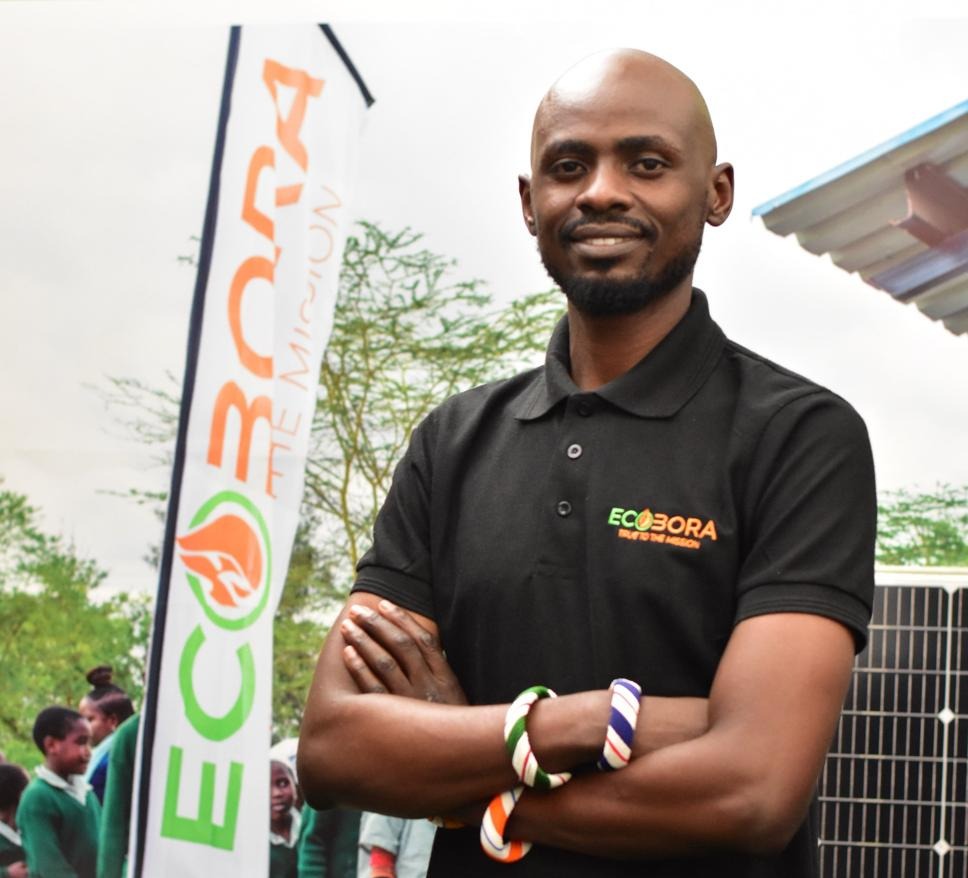
For Saruni, the change has also lightened the burden on girls, adding that before, mostly girls were the ones carrying firewood because in the community, boys are not supposed to fetch firewood.
IDEA FUELING IMPACT
ECOBORA CEO Justine Abuga is transforming how schools cook meals by replacing smoky firewood kitchens with clean, solar-powered cooking boilers.
Founded in 2015, ECOBORA manufactures solar stoves locally at its factory in Kajiado and installs them in schools across Kenya.
“We do everything across the value chain from manufacturing, installations, training, and even repair and maintenance. Our mission is to uplift rural marginalised schools out of energy poverty," he said.
The idea was born from a visit to a children’s home in Dandora, where he found that despite having food, the home could not cook because there was no firewood.
After several trials using pellets and charcoal alternatives, Abuga and his team developed Kenya’s first solar-powered cooking boiler for schools.
Today, the innovation is helping thousands of learners access daily meals while cutting down deforestation and harmful emissions.
One solar stove, he explained, eliminates the use of firewood in a school kitchen, which otherwise emits about 240 tonnes of carbon dioxide per year.
“We have eliminated or reduced emission levels from 240 tonnes to zero. We have created a space whereby cooks have a healthy environment. The stoves are durable and affordable. Schools that once spent up to Sh6 million annually on firewood can recover their investment within two years,” he said.
“After year two, you’ll no longer be purchasing firewood. We have seen schools use the savings to equip computer labs, develop classrooms, and even improve diets for students.”
Through a partnership with TRANSFORM, ECOBORA has established five solar-powered school kitchens in Embu County, benefiting more than 12,000 learners.
“TRANSFORM really helped us redefine our business model. We were able to pilot a pay-as-you-go model that broke the affordability barrier.”
Currently operating in nine counties, ECOBORA has installed 22 solar stoves serving over 8,000 learners.
The company plans to reach 10,000 schools in the next two years and expand into Uganda, Tanzania, among other African countries.
Unilever East Africa Managing Director Luck Ochieng praised Ecobora’s clean energy efforts, calling the partnership a game-changer for schools and communities in Kenya.
“At Unilever, we partnered with ECOBORA through the TRANSFORM initiative a collaboration between Unilever, the UK’s FCDO, and EY. Their solar-powered cooking technology is helping schools move away from firewood, improving health and keeping more children in school,” he said.
He noted that ECOBORA stood out for its innovative, pay-as-you-go solar boilers that reduce costs and carbon emissions while supporting education.
He highlighted the transformative potential of solar kitchens to unlock better nutrition, improve attendance, and promote healthier learning environments while reducing deforestation and indoor air pollution.
“With the right support, this model can scale across Africa and help millions of children thrive,” he said.















